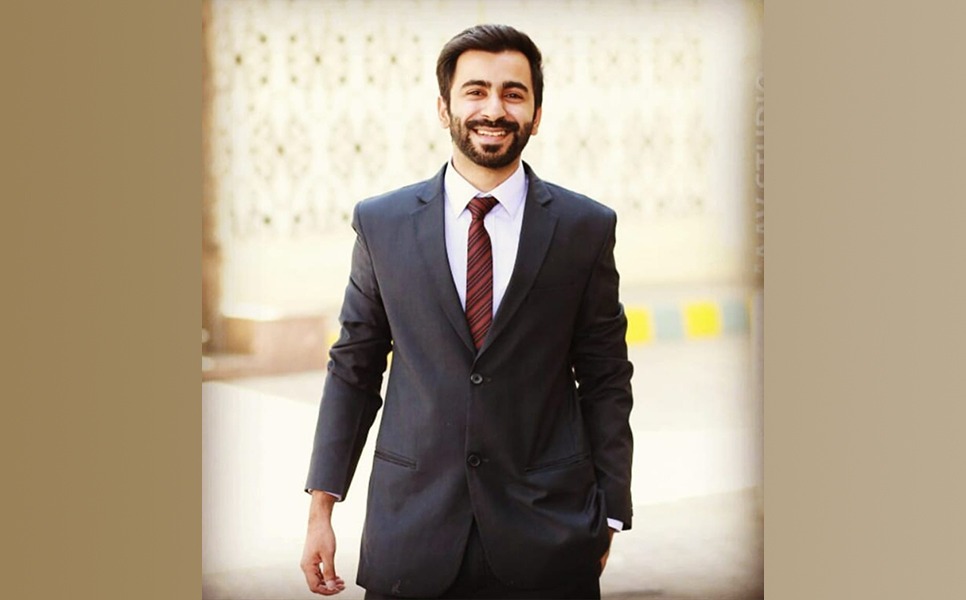"Why does perception beat perspectives every time?"
Muhammad Murtaza
Jan-01-1970
Perception is a broad term that defines the amass of individual experiences, sensory input, and cognitive processes that shape our understanding of the world around us, while perspectives belong to a more narrow and subjective point of view based on personal beliefs, biases, and limited information that derives from the perception. It is important to understand the distinction between perception and perspective to truly appreciate the impact of perception in shaping our understanding of the world. Our perception is influenced by various factors, including our sensory experiences, cultural backgrounds, and personal beliefs. Moreover, perception can be created to influence the perspectives of individuals. This is why perception beats perspectives every time.
Unlike perception, perspectives are inherently limited by our individual biases, beliefs, and information extracted from biased mediums. While perspectives can offer valuable insights, they are constrained by our personal experiences and knowledge, on the other hand, perception encompasses the understanding of the mindset of the masses that shapes their thoughts, beliefs, and experiences through mainstream media, social media media, and especially, the voice of political leaders.
When Pakistani Air Force shot down the MiG-21 Bison Group and captured Captain Abhinandan Varthaman VrC, who was an Indian Air Force fighter pilot in a retaliatory airstrike in Jammu and Kashmir, people were excited and raised slogans in favor of the military and its Chief. Then, the perspective of people held that Pakistan can beat India militarily with scarce resources. Ulmas has always been an example of War at Badr on such occasions that war can be won without necessarily military strength and technology. This event fueled the positive image of the military.
The celebration lost its importance once the military establishment decided to get themselves free from politics. The leadership of the PTI got upset as their sole strength was that institution at that time and started dragging them into politics by calling neutrals alike animals, campaigning the very institution that had so far supported them once the party realized that, without that support, he would lose its government. Then their fears become reality.
A massive campaign was initiated against the then COAS and his core team members of his institution, indulging in his political involvement in government affairs, while asking secret meeting at the Presidential house to him for supporting him bringing back to the government. In his rallies, Khan blames all of the obstacles on the growth of the government to the military establishment, shifting his political campaign from two dominant parties PML (N) and PPP to the military establishment, damaging the institution's repute to that extent, from where it might take time for the institution to recover their repute.
One can not deny the fact that there is only one perfect government structure. America grew because of its democratic rule, China grew under the ambit of the communist regime, and India under the fascist regime. Since the establishment of Pakistan, the country has struggled to impose a democratic regime in the country, but the installment of the dictatorship through a military coup impedes the process. Though the champions of democratic leaders have never devolved powers to local government bodies, there are very rare chances for any common people to climb to the top of the federal government, emerging from the grassroots level to the top hierarchy of the government. This led to providing political power to the few members of the political elite.
Then in 2018, a Hybrid governance system was introduced. This system could be successful if the priority of the government is based on good governance. Yet, the focus was eliminating the opponents by using state institutions. For instance, blackmailed the Chairmen of NAB for his alleged harassment video to pursue cases against opponents, used IB for stealing elections in Sialkot, and used ANF to register a fake case of 10kg Heroine against Rana Sanaullah e.t.c. The perception formed that the military establishment is behind on every insidious move, eliciting anger from the supporters of the two dominant parties.
In 2024, the same victim parties came to power with the perception of another hybrid regime. After the PTI leaders targeted military installment, attacked police with a petrol bomb, and threatened the election secretary, the same institutions responded by arresting their supporters, and registering numerous cases, paving the way for two dominant powers to come back to rule the government, though the PTI had massive support from the people at that particular period.
All stakeholders that form a hybrid government must give each other space in those domains that become contentious issues among them, including foreign policy. The system could work, if it provides relief to the destitute people, reduces the fiscal deficit, increases their foreign reserves, which are expected to reach $9 billion, a massive gain that was $ 2 billion in February, resolves industrial issues, and eliminates malpractices in the government institutions, while providing civil rights to the people that guarantees our constitution e.t.c.
In a nutshell, unless the political leaders are willing to devolve powers to the common man, maintaining a political-elite captured state, the success of the hybrid model could potentially have extensive benefits for the country and those countries facing similar challenges, such as Egypt, Venezuela, Myanmar, etc. By improving the quality of life of the common man, this model could gain popularity at the international level. If successful, this model could set an example for positive change in regions where military dominance has been a deemed hindrance to progress, Pakistan could serve as a role model for other countries facing similar challenges. In addition to it, it will regain repute to the military establishment. Then, a new perception would be created that this model could work and beat perspectives



